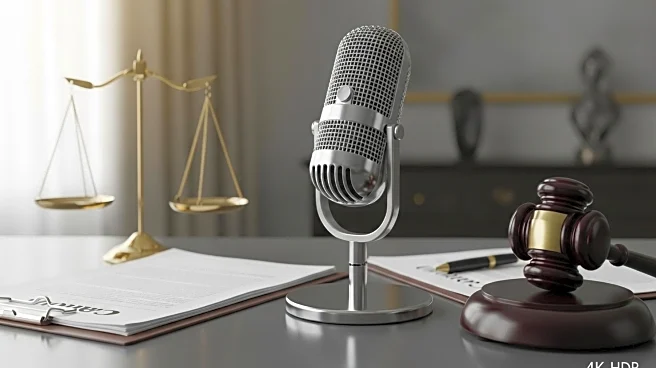What's Happening?
The Trump administration has announced the elimination of more than 500 jobs at Voice of America (VOA) and its parent agency, the U.S. Agency for Global Media. This decision comes amidst ongoing legal challenges concerning the future of these government-funded international broadcasters. Kari Lake, acting chief executive of the oversight agency, revealed the job cuts shortly after a federal judge blocked her attempt to remove Michael Abramowitz as VOA director. The judge, Royce Lamberth, has ordered Lake to comply with his directives to restore VOA operations and to sit for a deposition by September 15. Despite the legal hurdles, Lake stated that the agency would continue to fulfill its mission and improve its functionality post-reduction in force.
Why It's Important?
The job cuts at Voice of America and its parent agency could significantly impact the U.S.'s ability to project its influence globally through media. These broadcasters have historically played a role in promoting American values and countering authoritarian narratives. The reduction in workforce may hinder their operational capacity and effectiveness. Additionally, the legal battles surrounding these cuts highlight tensions between the administration's objectives and judicial oversight, raising questions about governance and compliance with legal standards. The outcome of these disputes could set precedents for how government agencies manage personnel and execute strategic changes.
What's Next?
The Trump administration faces a deadline to demonstrate compliance with court orders regarding VOA operations. The deposition of Kari Lake by September 15 will be crucial in determining whether the agency's actions align with congressional requirements. The legal proceedings may influence future decisions on agency restructuring and personnel management. Stakeholders, including agency employees and international audiences, will be closely monitoring developments to assess the impact on VOA's mission and global reach.
Beyond the Headlines
The broader implications of these job cuts extend to the ethical and legal dimensions of government-funded media operations. The reduction in force raises questions about the balance between administrative efficiency and the preservation of journalistic integrity. As these broadcasters aim to combat authoritarianism, their ability to maintain independence and credibility is paramount. The legal challenges may also prompt discussions on the role of judicial oversight in safeguarding public interest against executive actions.








